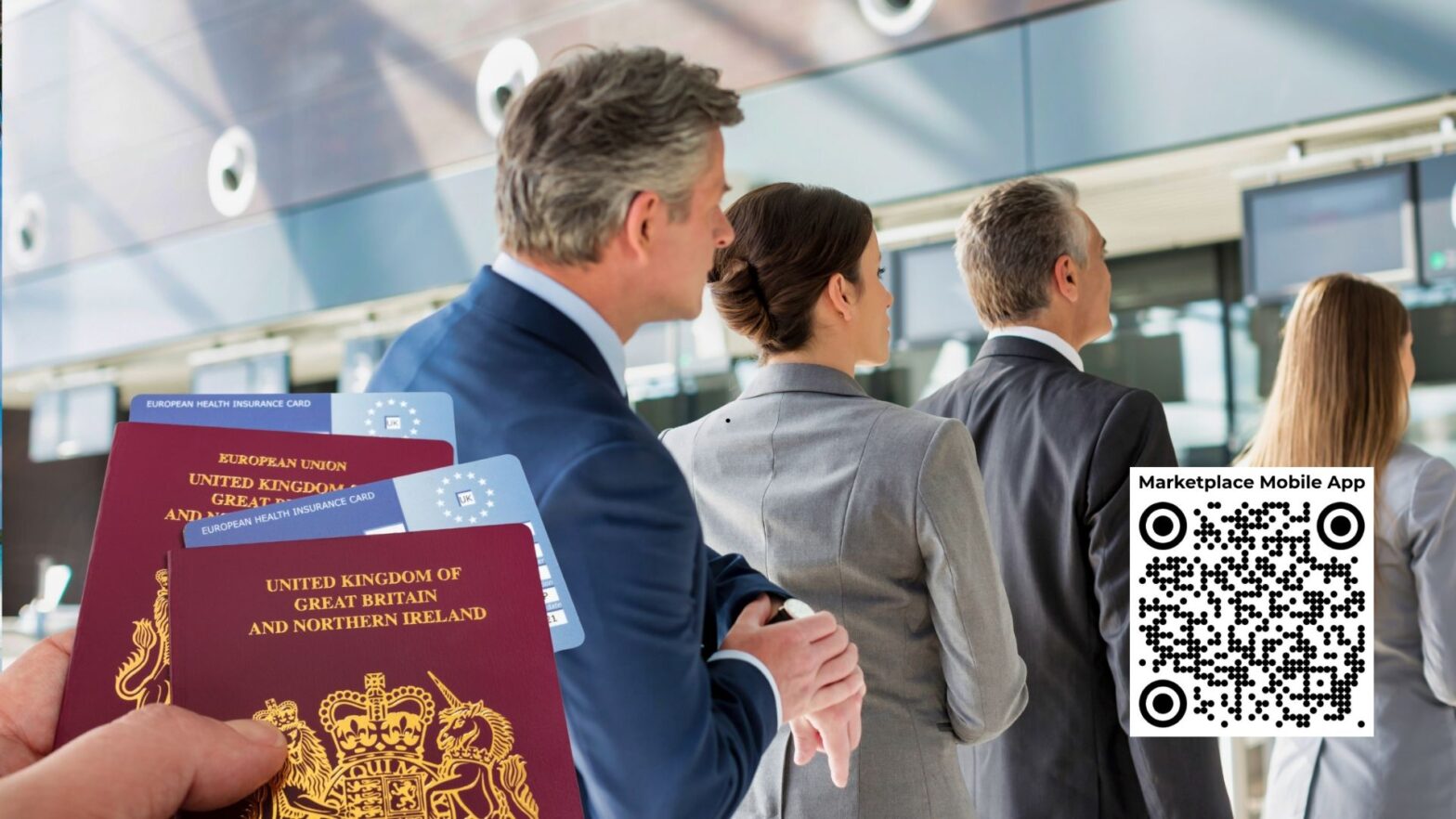To Travel Abroad, you need a Valid Passport
Gone are the days when a British citizen could cross international borders without restriction. In the past, sometimes it wasn’t even necessary to open your passport. Passport requirements for UK nationals are no longer so simple. With that in mind, here’s a practical guide to help you ensure you travel with a valid passport wherever you go.
It sounds simple. After all, who would travel with an invalid passport? Unfortunately, it’s easy to get things wrong. Different countries have different rules for passport validity, and since Britain left the European Union (EU), British citizens cannot benefit from agreements made by the EU with other jurisdictions. Today, it’s essential to check the precise requirements for each country you’ll visit.
Passport requirements: does the six-months rule still apply?
UK citizens used to be able to travel nearly anywhere, so long as there was at least 6 months before their passport was due to expire. Some countries still use that but it’s unwise to rely on a quick glance at your passport to check and rely on the 6-months rule.
An alternative to the 6-months rule, and these are the current USA passport rules, is that your passport must be valid for the entire length of your stay. That sounds quite flexible and potentially means you could travel with a passport that has less than six months to expiry. However, it is still wiser to have a longer buffer of time. That way you never run the risk of trying to travel on an expired document.
Additionally, if your journey includes several countries, it’s essential your passport is valid for all of them. That means checking all requirements and making sure your passport has plenty of life left beyond the most demanding regulation.
If all this sounds alarming, don’t worry. The travel advice section of GOV.UK includes passport requirements for every country or territory you’re likely to visit – and quite a few you’re not.
But I’m only going to Europe…
Things have also changed since the UK left the European Union. When we were in the EU, travel within Europe was easy. Passports or other ID documents had to be valid but often they weren’t checked. Now things are different. As described on GOV.UK,
“If you are planning to travel to an EU country (except Ireland), or Switzerland, Norway, Iceland, Liechtenstein, Andorra, Monaco, San Marino or Vatican City, follow the Schengen area passport requirements.
Your passport must be:
- issued less than 10 years before the date you enter the country (check the ‘date of issue’)
- valid for at least 3 months after the day you plan to leave (check the ‘expiry date’)”.
What’s the Schengen Area?
Currently, the Schengen Area countries mentioned above includes most nations in the EU, except Ireland and Cyprus. Additionally, the non-EU states of Iceland, Norway, Switzerland and Liechtenstein also have joined the Schengen Area.
Apart from passport requirements, each EU country may have different entry formalities (eg, whether or not you have to prove where you’re going to stay) and each country might interpret the same shared rules slightly differently. This means it essential you check requirments before you go – not when you get to your point of entry!
Passport requirements for some other popular destinations
Here are a few popular destinations outside the EU, and their current entry requirements. Some visas are free or carry a modest administration fee. Do note that regulations can change at short notice. Just before you book your holiday, always check the requirements for your specific destinations.
| Country | Passport | Visa required as a tourist? |
| Australia | Valid for the duration of your planned stay | A tourist visa is required, allowing you to visit Australia as many times as you like in a 12-month period, staying up to 3 months at a time. Longer stays require a different visa. |
| Canada | Valid for the duration of your planned stay | Tourists usually don’t require a visa for a stay of less than 6 months. If you don’t need a visa you’ll probably need an Electronic Travel Authorisation (an eTA). |
| India | Valid for at least six months from your date of entry. | A visa is required for anyone who is not an Indian national or an Overseas Citizen of India (OCI) cardholder. |
| Republic of Ireland | A passport is not required, but you may be required to show ID and a passport is ideal for that purpose. | There is a common travel agreement with Ireland. British nationals do not need a visa to enter Ireland, and may remain there to live or work for an unspecified amount of time. |
| Montenegro (not part of the EU, nor the Schengen Area, although it hopes to join the EU in the future.) | Passport requirements are the same as those for EU | There is no visa required for up to 90 days in any 180-day period. If you go to Montenegro without a visa, your whole stay must be within the 90-day limit. Visits within the previous 180 days of your arrival count towards your 90 days.
|
| Morocco | Must have an expiry date at least 3 months after the day you plan to leave. Ensure your passport is not damaged and get it stamped on arrival. | Tourists can visit for up to 90 days without a visa. |
| New Zealand | Must have an expiry date at least 3 months after the day you plan to leave. | No visa required if you’re staying less than six months – but you do need a New Zealand Electronic Travel Authority (NZeTA). |
| Thailand | Valid for at least six months from your date of entry. | Up to 60 days: no visa, but double-check regulations if you intend to work there for extended periods of time. |
| Turkey | Valid for at least 150 days from the date you arrive. Make sure you have a full blank page for entry and exit stamps. | For tourism, no visa required to stay up to 90 days within any 180 day period. |
| USA | Valid for the length of your planned stay. | To enter or transit via the US, you must have either a visa or an Electronic System for Travel Authorisation (ESTA) visa waiver.
See also the US State Department. |
| Vietnam | Valid for at least 6 months from the date of entry; ensure passport is undamaged, with at least two blank pages. | No visa required for stays of up to 45 days. |
| IMPORTANT NOTE: entry requirements, especially for visas, can change quickly. They may be different, or the same rules applied differently, depending on your arrival point in your destination country. Check GOV.UK and check the exact details required with the relevant authorities for your destination. | ||
Travel with peace of mind (and a valid passport!)
Prepare for your travels before you go and make sure your passport is valid for your destination or destinations. Make visa applications in plenty of time, and purchase the most suitable travel insurance. Do your own research. And for a good place to start, why not check out https://www.gov.uk/foreign-travel-advice . Follow these simple rules and you’ll be well on your way to a great holiday.
By Declan Morton, writer and editor at Essiell Ltd and Money4Travel.
More about the author.



